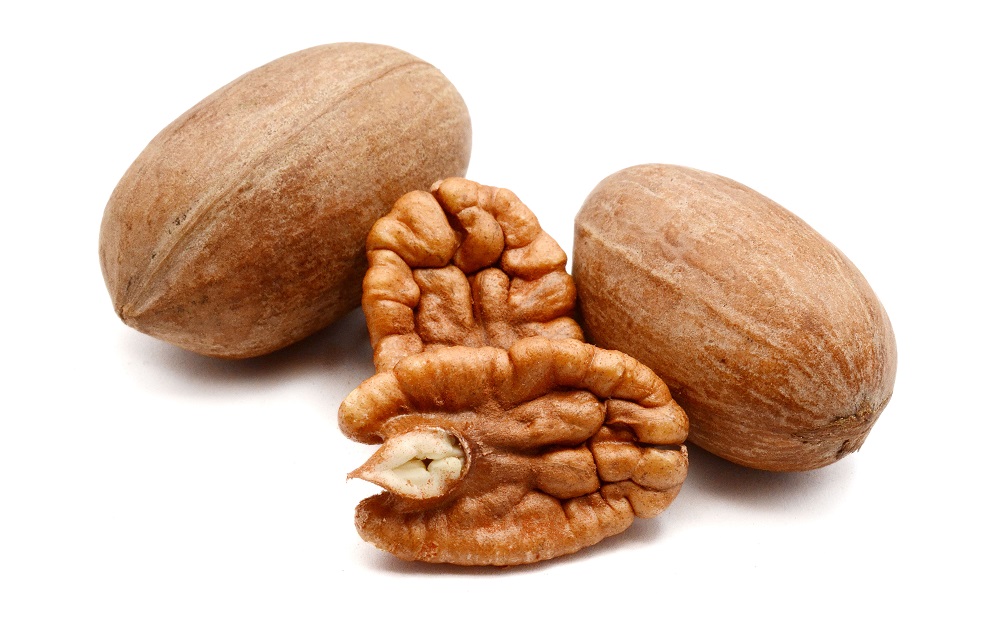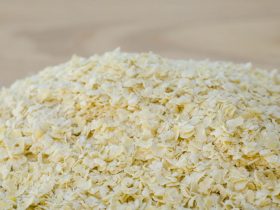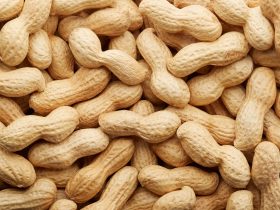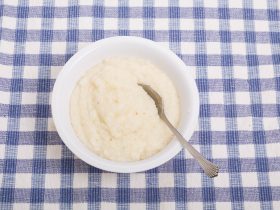Pecan, otherwise referred to as Carya illinoinensis, is an edible nut primarily consumed as a snack or used in the baking of confections called pralines. Being produced by an easily-developed tree, pecans are in no short supply throughout most of the world, and as such are often purchased in large quantities.
According to an analytical assay performed by the U.S. Department of Agriculture, pecans can have a lipid percentage as high as 72% on average1, making them highly resistant to bacterial and fungal colonization, though this is affected by a multitude of factors.
Like most nuts, pecans grow with an external shell surrounding them, and as such have a longer shelf-life if this shell is kept intact. If this shell is still present, pecans may last up to a length of four months, and up to four weeks if shelled. It is possible for this to be extended with other forms of storage.
How Long Do Pecans Last out of the Fridge?
As pecans, like most nuts, possess a high fat content, they are highly susceptible to losing texture and flavor when exposed to both heat or direct sunlight.
Pecans, if stored in the proper conditions, will last for a period of four weeks, though this will require certain steps be taken.

Store the pecans in an air-tight container preferably made from an opaque material before placing them in a dark and cool corner of your kitchen or pantry.
Keep in mind that direct sunlight will both dry out the pecans as well as harden them, so it is best to keep the container of nuts away from any uncovered windows.
How Long Do Pecans Last in the Fridge?
In the event that you need to store pecans for longer than four weeks, it is entirely possible to place the nuts in the fridge to extend their shelf-life through lowered temperatures.
Pecans, when stored properly in an air-tight container, will last up to four months in the fridge.
In order to refrigerate pecans, the only equipment needed is an air-tight glass or metal container, as plastic or similar materials will absorb the lipids present in pecans, potentially ruining the container.
Thoroughly dry the interior of the container and pour the pecans inside, leaving as little space between the pecans and the cover of the container. Place the container away from any vents or other sources of air-flow within the fridge.
What is the Ideal Moisture Content for Pecans?
Like most forms of farm-harvested organic produce, pecans are first gathered while they possess higher moisture content than is acceptable for storage standards.
Moisture is one of the primary factors for food spoiling before its maximum shelf-life, as the presence of water is a motivating factor for many species of bacteria and fungi, allowing them to breed more quickly.
According to a study published by the New Mexico State University, pecans are most often harvested at an average moisture content of 25–30%. In order to store pecans at the ideal conditions, they must be dehydrated until their total moisture content is around the 4% mark2.
What is the Ideal Relative Moisture for Storing Pecans?
While this article has covered the internal moisture content of pecans when choosing to store them, it is also possible for the nuts to absorb ambient moisture from the air, especially when dried in accordance with their storage standards.
The ideal relative moisture of the pecans’ storage environment is only a low 65–70%, approximately the average humidity of a home in more temperate climates.
In order to best maintain the humidity of your storage environment or container, it is advisable to close any vents or windows and to store the pecans away from sources of heat and sunlight.
If storing large amounts of pecans, it is also possible to place them in a moisture-controlled fridge, or even to use humidifier technology.
Can Pecans be Frozen?
If, instead, your storage requirements for pecans are truly long term, freezing is the ideal option. Freezing your pecans will allow them to last as long as an impressive two years, though many factors may shorten this amount of time.
Freezing both slows down the chemical reactions occurring within the pecans as well as any forms of microbiological activity that may be present, essentially putting a pause on the break-down of your nuts.
To freeze pecans, all that is required are a set of resealable plastic pouches and a freezer capable of reaching 32°F or lower.
First, inspect the pecans for any signs of spoilage, as not even freezing will prevent the entire batch from going bad if stored with any expired nuts.
After inspecting, place a single serving volume of nuts into each plastic pouch. Push as much air as possible out of the bag, pressing the nuts as closely together as possible without damaging them.
Store the individual pouches in the deepest part of your freezer. Owing to their very low water content, there is no need to defrost them, and they should be readily available to eat immediately after removing from the freezer.
Does Freezing Pecans Affect their Quality?
As previously mentioned in this article, it was found that pecans possess a very high amount of lipids and are further dehydrated so as to lower their water content to around 4%.
Because of this, the act of freezing pecans should not damage or alter them in any significant way, as the primary reason for loss of quality when freezing food is the crystallization of water within the food.
It is entirely advisable to freeze your pecans, especially if planning to use them for baking or similar dishes.
Do These Procedures Apply to Candied Pecans?
While pecans are kept best in their shelled and dry form, occasionally they are sold glazed in sugar or as similar candy-like products. In short, no, pecans that have been processed and possess additives will not have the same shelf-life as ordinary pecans.
Depending on the exact ingredients used, pecans may last for an ever longer period of time than their unaltered counterparts. Keep in mind that the pecans will only stay shelf-stable as long as their fastest expiring additive, owing to microorganism growth spreading throughout the food.
References
1. Unknown Author. (January 2019) “Nuts, pecans” U.S. Department of Agriculture FoodData Central https://fdc.nal.usda.gov/fdc-app.html#/food-details/170182/nutrients
2. Esteban Herrera. (October 2005) “Storing Pecans” New Mexico State University College of Agricultural, Consumer and Environmental Sciences





Hi, I'm Dom
Dom Eats was started to help other people fall in love with food. While cooking can feel intimidating, it doesn't have to be.